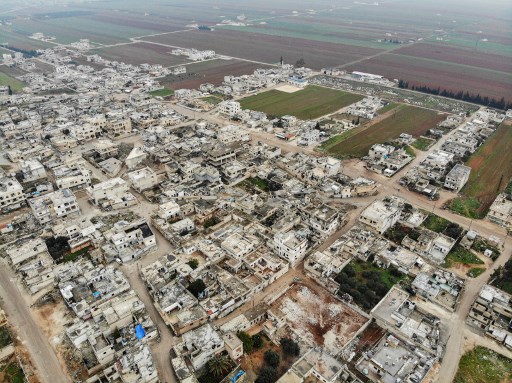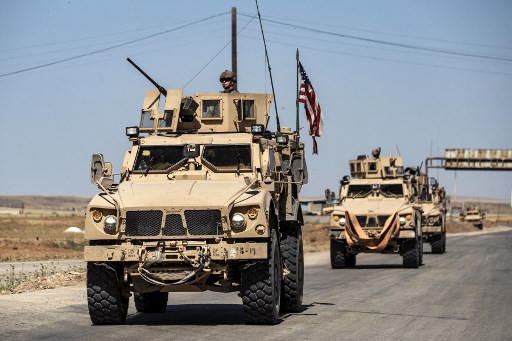
BEIRUT, Lebanon (AFP) — The International Committee of the Red Cross warned Thursday of a worsening crisis in northeast Syria, where water cuts, food shortages and depleted health services are proving as dangerous as coronavirus.
Home to sprawling displacement camps hosting tens of thousands of people, including families of Islamic State group members, the Kurdish-held northeast has been hard hit by nine years of war.
A COVID-19 outbreak, which the United Nations says has infected six people and killed one in the region, has only added to a litany of challenges in the area, the ICRC said.
“For millions of people in northeast Syria, consequences of fighting, shortages of water, food and medicine, a lack of electricity, the economic downturn with job losses and price hikes are as much of a worry as coronavirus,” said Karim Mahmoud, ICRC office head in the city of Hasakeh.
Fabrizio Carboni, ICRC’s regional director, said “there’s a risk that profound crises will worsen, hidden in plain sight, while the world’s attention is on” the COVID-19 pandemic.
Under pressure from Russia, the UN Security Council in January reduced the number of border crossings authorised to deliver humanitarian aid to northern Syria from four to two, both on the Turkish frontier.

The Yarubiya entry point on the Iraqi border, used mainly to deliver UN-funded medical aid to the northeast, was one of those scrapped, causing an aid shortage.
Only one out of 16 hospitals is fully functioning, while eight are partially operational and seven are out of commission, the ICRC said.
Over 50 percent of the local population in northeast Syria is believed to be food insecure, which means they consume less than 2,100 calories a day, the World Food Programme says.
That high proportion was “due to the heavy fighting that took place in this part of Syria over the past few years,” said WFP spokeswoman Jessica Lawson.
Kurdish-led fighters for years battled IS, before Turkey and its Syrian proxies seized Kurdish areas on the Syrian side of the border last year.
“Many households were displaced a number of times and frequently most of their belongings have been destroyed or looted, heavily affecting livelihoods in the area,” Lawson said.
© Agence France-Presse







